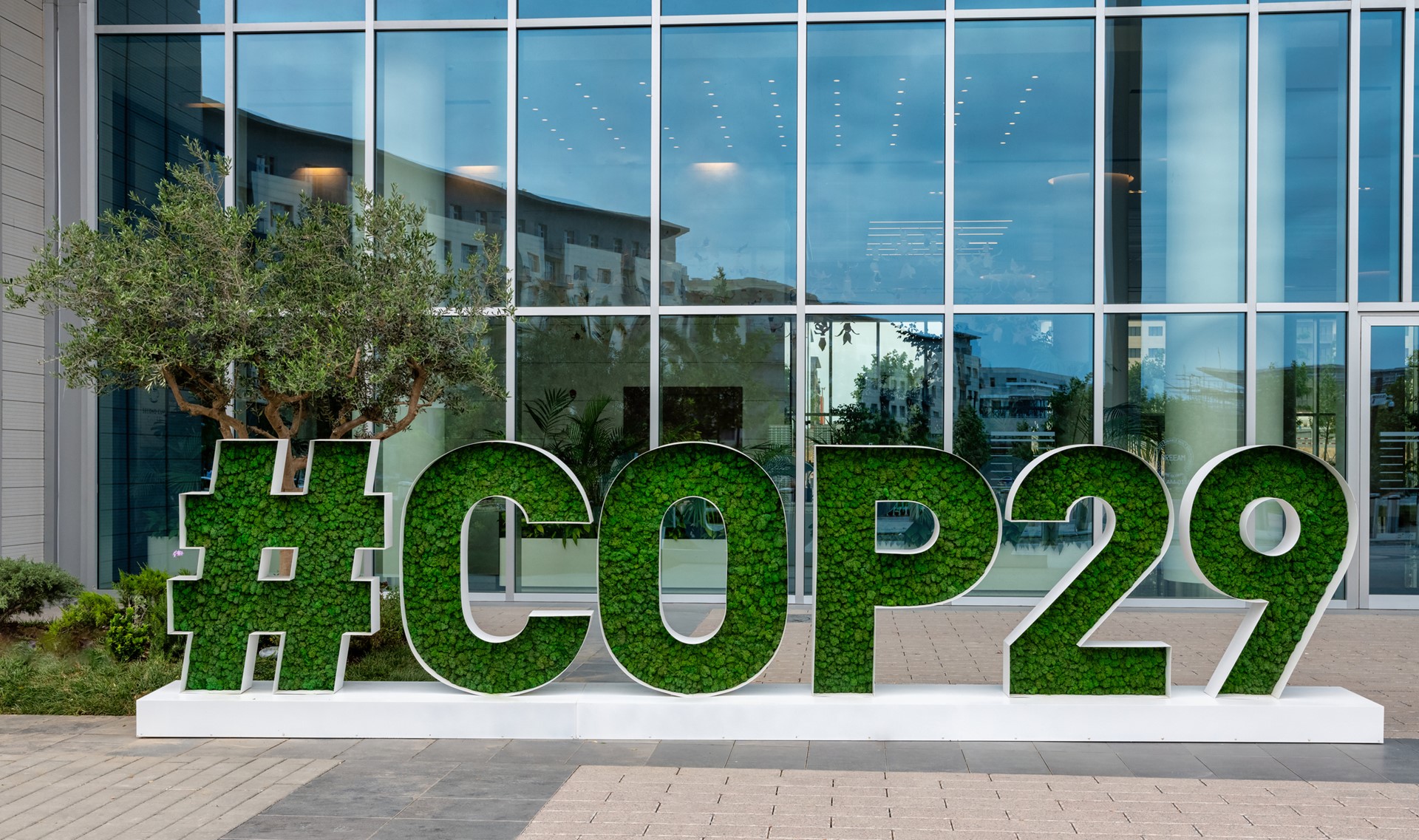COP29 heats up: money, methane, and missing leaders
19 November 2024

19 November 2024

Article written by: Tim Mooney
The dialogue underscoring a COP run-up is the same every year: we need change but will change happen? COP29 is no exception, and as delegates arrived at the event in Batu this morning, those from G20 nations did so with firm words from UN Secretary-General Antonio Guterres.
“A successful outcome at COP29 is within reach,” said Gutteres at the G20 summit hosted in Rio de Janeiro. “But it will require leadership and compromise, namely from the G20 countries.”
But the COP29 talks in Baku had a somewhat shaky start. Notable absences include leaders from G20 countries Germany, France, and the US (who could perhaps be forgiven in the midst of their election). Although, soon-to-be president Trump has made clear his plans to withdraw from the Paris Agreement for a second time once he re-enters the White House.
Argentina also withdrew negotiators from the COP29 under the direction of climate-denier president Javier Milei. This has sparked concerns that Trump’s decision to back out of the Paris Agreement may trigger similar responses from other governments who no longer view the agreement as obligatory.
A key focus of this year’s negotiations has been climate finance, namely the target figure of the New Collective Quantified Goal on Climate Finance (NCQG) which will provide financial assistance to developing countries to tackle emissions and phase out fossil fuels.
Estimates suggest that by 2030, developing countries will need $1trn a year to respond to the climate crisis which often has more devastating impacts on these nations. However, landing on the final figure has been a fierce topic of debate at this year’s COP, and last year’s championed Loss and Damage fund has lost the limelight this year in place of the NCQG.
Most notably, the financial burden of this falls on developed Western countries who are arguing that China and wealthy Gulf states should be contributing to the fund as well. China is technically classified as a developing country, but its distinguished progress in tech and manufacturing make it a global superpower inconsistent with the ‘developing’ status. In response, China outlined it has provided more than $20bn in climate finance since 2016.
It is hoped that Week 2 at COP will close in on this final figure.
Richly discussed at the negotiations is the importance of fossil fuels to COP29’s host, Azerbaijan, and the positioning of many oil nations at the event. The Saudis have been reportedly trying hard to unpick a commitment to ‘transition away’ from fossil fuels, and Azerbaijan’s president, Ilham Aliyev, praised fossil fuels in his opening speech at COP29, calling oil and gas resources a “gift of the God.” This has sparked outrage among delegates and commentators, and has likely triggered the slew of protestors dotted outside the conference with anti-fossil fuel signs.
This has fuelled one of the biggest debates of the event: whether to include the term ‘transition away from fossil fuels’ in the final text. Climate science dictates that this is a necessary step to preserve our planet and prevent catastrophic warming, but fossil nations see this as a threat to their wealth and livelihood.
One of the earliest agreements pushed through the door at COP29 was the agreement on Article 6, the establishment of international carbon market standards. This means a centralised carbon market under the UN, and the market will help countries implement their climate plans faster and cheaper.
The UN has also described the slashing of methane emissions as “our emergency break.” Rotting food in landfills cause about 20 per cent of human-related methane emissions, but agriculture is the principal culprit, contributing to 49 per cent of all methane emissions for the UK in 2021.
As a result of this, the negotiations conjured up the COP29 Reducing Methane from Organic Waste Declaration which commits countries to creating and abiding by targets on food waste within future pledges. More than 30 countries representing almost 50 per cent of global methane emissions have endorsed the declaration.
Share